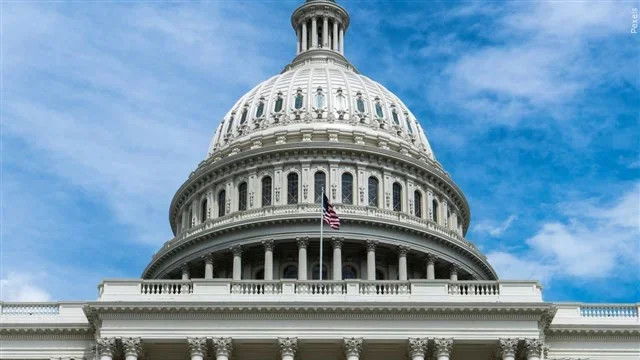Chavez-DeRemer, colleagues’ bill aims to boost pilot training, widen access to student loans

WASHINGTON (KTVZ) – Rep. Lori Chavez-DeRemer (OR-05) recently joined Reps. Colin Allred (TX-32) and Steve Cohen (TN-09) to introduce the bipartisan Flight Education Access Act. The Transportation and Infrastructure committee members’ proposal would raise the student loan limit for those who need financial assistance to pay for flight training.
Airline pilots are required to complete the Federal Aviation Administration’s regulated training, which typically costs approximately $80,000 in tuition and fees that are associated with the four-year degree, according to the University Aviation Association.
Current federal loan limits do not accommodate the full cost of pilot training, limiting access for students who cannot afford to pay out of pocket or take on high-cost private loan debt, the congresswoman said.
“Long delays and cancellations have become all too common in airports across the country, and part of the reason is due to a shortage of pilots," she said. "Our common-sense proposal would help close the gap by creating outreach programs and giving prospective pilots the same loan opportunities granted to students at traditional four-year schools.
"I’m hopeful that we can get this bipartisan legislation across the finish line to attract more pilots and improve air travel for Oregonians and all Americans,” Chavez-DeRemer said.
Allred said, “Our aviation industry and the pilots who make it all possible need help getting access to the training to get into the industry.
"This bill is an important step to improve access to student loans for pilot training, and we will continue to take action to increase the workforce pipeline for all kinds of folks to become pilots. I hope we can pass this bill and keep working so that young folks who dream of becoming a pilot can get the skills and training they need to do just that.”
Cohen said. “I am proud to join my colleagues in introducing the bipartisan Flight Education Access Act, which addresses the need to grow our qualified aviation workforce, particularly in regions like Memphis.”
“From tourism to increased cargo shipments, our local economy has come roaring back, and that’s contributing to strong demand for a growing qualified aviation workforce. Currently, Black Americans represent only 3.4% of professional pilots — a huge missed opportunity for a workforce in real need of energizing, especially when you consider all of the untapped talent we have throughout our region’s high schools, HBCU’s, and elsewhere.
"Our new bill would help capitalize on that opportunity, not only by expanding federal student loan limits for flight education, but also by fostering industry partnerships and scholarships targeted at underrepresented backgrounds. The Flight Education Access Act will help support our growing economy while expanding opportunity and building a more inclusive aviation industry, and I’m proud to support it.”
This legislation is supported by the Regional Airline Association (RAA), Air Line Pilots Association (ALPA), Airlines for America (A4A), Southwest Airlines Pilots Association (SWAPA), National Air Carrier Association (NACA), University Aviation Association (UAA), and the National Business Aviation Association. Sens. Tammy Baldwin (D-Wis.) and Dan Sullivan (R-Ala.) have introduced companion legislation in the U.S. Senate.
The Flight Education Access Act:
- Increases the total maximum amount of Federal Direct Unsubsidized Stafford Loans an eligible dependent may borrow to $111,000, increases the maximum amount for independent students to $137,500, and increases the maximum amount of Federal Direct Stafford Loans to a total of $65,000;
- Requires the Government Accountability Office (GAO) to report on the bill’s implementation, the number of flight education and training programs and enrolled students, and demographic data on students’ participation in the loan program; and
- Authorizes a grant program to increase diversity in the pilot workforce pipeline through partnerships between industry and educational institutions. This includes scholarship programs, outreach and development programs, and startup grants for higher education institutions to create aviation programs that are geared toward students from low-income and underrepresented backgrounds.